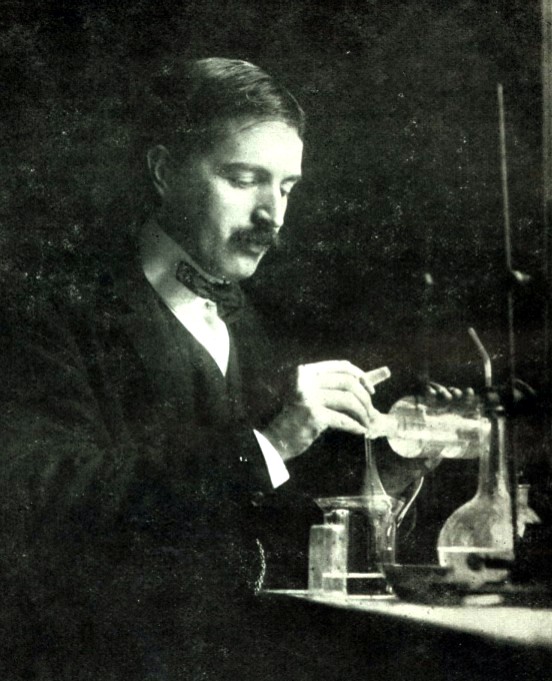<Back to Index>
- Chemist Theodore William Richards, 1868
- Painter Pieter de Bloot, 1601
- Cardinal-King of Portugal Henry, 1512
Theodore William Richards (January 31, 1868 – April 2, 1928) was the first American scientist to
receive the Nobel Prize in Chemistry, earning the award "in recognition
of his exact determinations of the atomic weights of a large number of
the chemical elements." Theodore Richards was born in Germantown, Pennsylvania to William Trost Richards,
a land- and seascape painter, and Anna née Matlack, a poet.
Richards received most of his pre-college education from his mother.
During one summer's stay at Newport, Rhode Island, Richards met Professor Josiah Parsons Cooke of
Harvard, who showed the young boy Saturn's rings through a small
telescope. Years later Cooke and Richards would work together in
Cooke's laboratory. Beginning
in 1878, the Richards family spent two years in Europe, largely in
England, where Theodore Richards' scientific interests grew stronger.
After the family's return to the United States, he entered Haverford
College, Pennsylvania in 1883 at the age of 14, earning a Bachelor of
Science degree in 1885. He then enrolled at Harvard University and
received a Bachelor of Arts degree in 1886, as further preparation for
graduate studies. Richards continued on at Harvard, obtaining a Ph.D. in
chemistry in 1888 for a determination of the atomic weight of oxygen
relative to hydrogen. His doctoral advisor was Josiah Parsons Cooke.
Following a year of post-doctoral work in Germany, where he studied under Victor Meyer and
others, Richards returned to Harvard as an assistant in chemistry, then
instructor, assistant professor, and finally full professor in 1901. In
1903 he became chairman of the Department of Chemistry at Harvard, and
in 1912 he was appointed Erving Professor of Chemistry and Director of
the new Wolcott Gibbs Memorial Laboratory. In 1896, Richards married Miriam Stuart Thayer. The couple had one daughter, Grace Thayer (who married James Bryant Conant), and two sons, Greenough Thayer and William Theodore. Both sons died by suicide. Richards'
maintained interests in both art and music. Among his recreations were
sketching, golf, and sailing. He died at Cambridge, Massachusetts, on
April 2, 1928, at the age of 60. According to one of his descendants,
Richards suffered from "chronic respiratory problems and a prolonged
depression."
